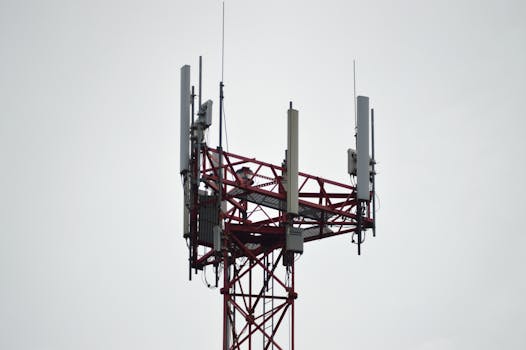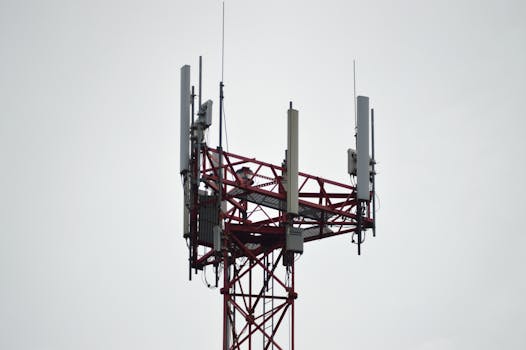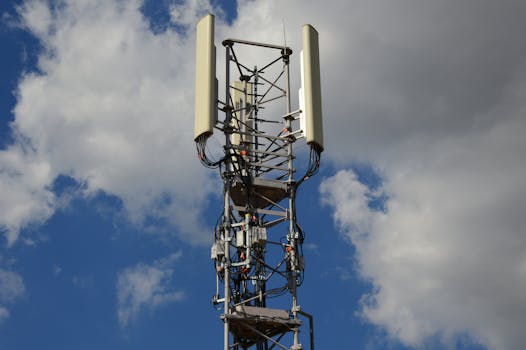From Scarcity to Connectivity: The Rise of Telecom Infrastructure in Africa – Revolutionizing the Continent

From Scarcity to Connectivity: The Rise of Telecom Infrastructure in Africa
Introduction

From Scarcity to Connectivity: The Rise of Telecom Infrastructure in Africa has been a remarkable journey. The African continent has undergone a significant transformation in recent years, with the telecom sector being a key driver of this change. The rise of mobile networks and internet penetration has bridged the gap between scarcity and connectivity, opening up new opportunities for economic growth, social development, and innovation.
Historical Context

Historically, Africa has faced significant challenges in terms of telecom infrastructure development. The lack of investment, limited access to funding, and inadequate regulatory frameworks hindered the growth of the sector. However, in the early 2000s, the African telecom landscape began to shift with the introduction of mobile networks. The launch of mobile services by operators such as MTN, Vodacom, and Celtel marked the beginning of a new era in African telecoms.
Current State of Telecom Infrastructure in Africa

Today, Africa is home to over 440 million mobile subscribers, with mobile penetration rates exceeding 80% in some countries. The proliferation of mobile devices has enabled millions of Africans to access basic services such as voice, SMS, and mobile internet. The rollout of 3G and 4G networks has further accelerated internet adoption, with many countries experiencing significant growth in data traffic.
Key Trends and Drivers

Several key trends and drivers are shaping the African telecom landscape. These include:
- Increasing demand for data services: The growing demand for data services is driving investment in network infrastructure, including fiber optic cables, cell towers, and data centers.
- Expansion of mobile money services: Mobile financial services, such as M-Pesa, are revolutionizing the way Africans access financial services, making it easier to send, receive, and store money.
- Growing adoption of cloud services: The adoption of cloud services is on the rise, with many African businesses and governments leveraging cloud computing to improve efficiency, reduce costs, and enhance scalability.
- Investment in submarine cables: The deployment of submarine cables, such as the East Africa Submarine Cable System (EASSy) and the West Africa Cable System (WACS), is improving international connectivity and reducing latency.
Challenges and Opportunities

Despite the progress made, the African telecom sector still faces significant challenges, including:
- Infrastructure deficits: Many African countries lack adequate telecom infrastructure, including fiber optic cables, cell towers, and data centers.
- Regulatory frameworks: Inadequate regulatory frameworks and lack of coordination among governments and regulatory bodies hinder the development of the sector.
- Cybersecurity threats: The increasing reliance on digital services has created new cybersecurity risks, with many African countries lacking the capacity to mitigate these threats.
However, these challenges also present opportunities for innovation, investment, and growth. The African telecom sector is expected to continue growing, driven by increasing demand for data services, expansion of mobile money services, and investment in digital infrastructure.
Conclusion

In conclusion, the rise of telecom infrastructure in Africa has transformed the continent, bridging the gap between scarcity and connectivity. As the sector continues to evolve, it is essential to address the challenges and opportunities that arise, ensuring that the benefits of digitalization are equitably distributed and that no one is left behind. With the right policies, investments, and partnerships, the African telecom sector can continue to drive economic growth, social development, and innovation, shaping a brighter future for the continent.
See more:



